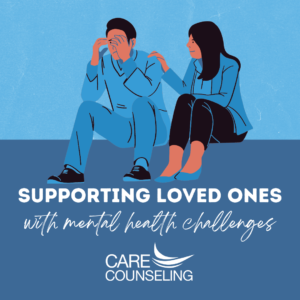Supporting Loved Ones with Mental Health Challenges

Supporting loved ones facing mental health challenges is crucial for their well-being and recovery. As family and friends, we play an essential role in providing comfort, understanding, and encouragement during difficult times. Let’s explore the various ways to offer effective support to those dealing with mental health issues. By fostering an environment of compassion and empathy, we can create a positive impact on their journey to healing.
- Educate Yourself about Mental Health
Before offering support, it is essential to educate yourself about different mental health conditions. Familiarize yourself with the symptoms, treatments, and available resources. Understanding the challenges your loved ones are facing will enable you to be more empathetic and responsive to their needs.
- Foster Open Communication
Create a safe space for open communication. Encourage your loved ones to express their thoughts and emotions without judgment. Listen actively and validate their feelings, showing them that they are not alone in their struggles.
- Avoid Stigmatizing Language
Be mindful of the language you use when discussing mental health. Avoid using stigmatizing terms that can perpetuate negative stereotypes. Choose words that promote understanding and acceptance, fostering an inclusive atmosphere.
- Offer Unconditional Support
Show your loved ones that you are there for them unconditionally. Offer support without pushing them to “snap out of it” or minimize their feelings. Your empathy and reassurance can make a significant difference in their journey to recovery.
- Encourage Professional Help
Supporting your loved ones also means encouraging them to seek professional help. Mental health professionals are equipped to provide the necessary guidance and treatments. Offer to assist them in finding suitable therapists or support groups.
- Be Patient and Understanding
Recovery from mental health challenges takes time, and setbacks may occur. Be patient and understanding, celebrating even the smallest achievements. Avoid pressuring your loved ones to recover quickly; instead, offer them the space they need to heal at their own pace.
- Encourage Self-Care
Promote self-care practices that can positively impact mental health. Encourage your loved ones to engage in activities they enjoy, such as hobbies, exercise, or spending time in nature. These activities can help reduce stress and promote emotional well-being.
- Set Boundaries
While it’s essential to offer support, it is equally vital to set boundaries for your well-being. Caring for someone with mental health challenges can be emotionally draining. Recognize when you need time for yourself and seek support from other family members or friends.
- Be Empathetic Towards Their Journey
Empathy plays a significant role in supporting loved ones with mental health challenges. Put yourself in their shoes and try to understand their emotions and experiences. By doing so, you can provide more meaningful and compassionate support.
- Eradicate Myths and Misconceptions
As a support system, it is your responsibility to help eliminate myths and misconceptions about mental health. Educate others in your community about the realities of mental health challenges to promote understanding and empathy.
Supporting loved ones with mental health challenges requires empathy, patience, and understanding. By fostering open communication, educating ourselves, and encouraging professional help, we can create a positive and supportive environment for their recovery. Remember that everyone’s journey is unique, and being there unconditionally can make all the difference. Together, we can break down stigmas, support healing, and ensure that our loved ones facing mental health challenges receive the care and love they need to thrive.



























